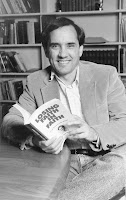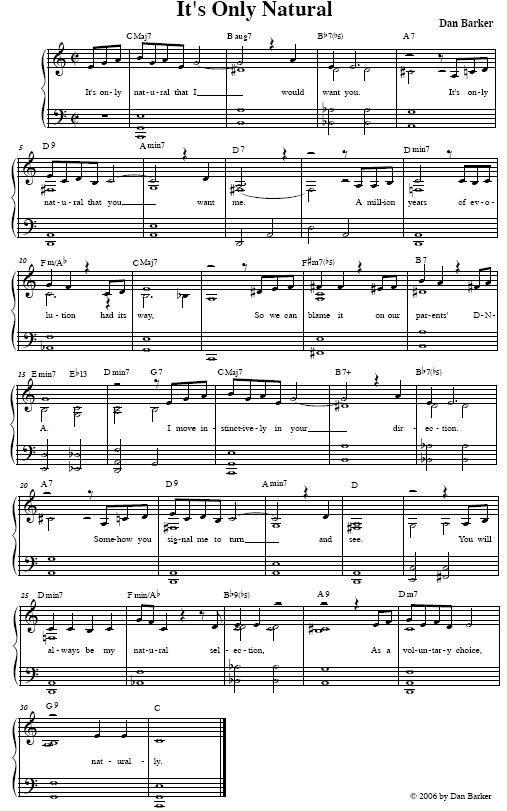Atheism Defined
by Dan Barker
Some have raised again the question of the definition of atheism/agnosticism. (Actually, I might have prompted the discussion in a recent email about a talkshow I did on Christian radio.* For about 20 years I have been one of the leading atheists in the US, and I am always asked to define precisely what those words mean.)
Right at the start there is a problem — though it is not a problem created by atheists. Different dictionaries often give different definitions. Dictionaries usually include one or more of these definitions of "atheism":
Some dictionaries only give one of those definitions, and some give both. Except for #3, both primary definitions are correct, as understood by atheists themselves.
- The denial of the existence of a god. (Or, as [a list participant] puts it, "the belief that there is no god." Or the dogma that god does not exist.)
- The disbelief in the existence of a god. (Or some other way to say this, such as "the absence of a belief in god.")
- Wickedness. This is usually last, and it is sometimes presented as informal usage. ("Wickedness" or "lack of moral standards" is more often a description of the word "godless" or "godlessness," which is the same as "atheism." And quite an insult.)
Looking up a word in the dictionary is not the best way to study a topic. How many Christians, for example, would trust the dictionary to explain their religion? (According to some dictionaries, a "Christian" is reasonably defined as a "follower of Christ," and by that definition Adolf Hitler, who was a member of the Catholic Church in good standing and claimed to be doing the will of Christ, was a Christian.)
My understanding and usage of the words "atheism" and "agnosticism" conforms to most atheistic literature, historical and contemporary , such as:
… and others.
- Atheism: A Philosophical Justification, by Michael Martin (1992, Temple University Press)
- Atheism: The Case Against God, by George Smith (1980, Prometheus Books)
- The Encyclopedia of Unbelief, edited by Gordon Stein (1985, Prometheus Books)
- Atheism, and other addresses, by Joseph Lewis (1941, Freethought Press)
- What is Atheism? A Short Introduction, by Doug Krueger (1998, Prometheus Books)
- A Defence of Atheism, by Ernestine Rose (1810 - 1892)
I admit that there is some disagreement among atheists, especially among philosophers (surprise, surprise). A few atheists think only Definition 1 is valid (because who would call herself or himself an "atheist" unless they are denying something?). Others think only Definition 2 is valid. And (I think) most of us think both definitions are valid. But those disagreements are not important to the actual question of whether a god exists.
Here's how I see it:
"Atheism" is a lack of belief in a god or gods. General atheism is not a belief — it is the absence of belief. (Corresponding to Definition #2.)
"Theism" is a belief, not a fact. Whether a god exists or not is indeed a question of fact, but "theism" is a belief system. Some theists do claim to know that a god exists, but they are a subset of theists. They all have a belief, whether they claim to know or not.
The prefix "a-" is the privative Greek prefix meaning "without" or "lacking" or "not" in the privative (not negative) sense. The prefix "a-" is not the same as the prefix "anti-".
For example, amoral does not equal immoral. Someone who is apolitical is not opposed to politics. Music that is atonal is not music that is anti-tonal (whatever that would mean).
And an atheist is not (necessarily) an anti-theist.
An a-theist is simply someone who is not a theist. Someone who lacks a belief, for whatever reason. Under this definition, every baby is an atheist. (See Stein, especially, on this point, as well as Rose. Stein goes to great historical lengths to show that this is precisely how atheist writers and activists have defined themselves, despite the general public's insistence that atheism is a belief.)
When it comes to the general question of whether a god exists or not, I am an a-theist in this privative sense. There are so many (perhaps an infinite number) definitions of the word "god" that there is no way anyone could say with confidence that they "know" that none of these gods exist.
However, there is a subset of atheists who do claim to know that a god (or a certain god) does not exist. These correspond to Definition #1, the denial of the existence of a god.
Atheist writers and philosophers have distinguished between these two types of atheism. Michael Martin calls it Negative Atheism (lack of belief) vs. Positive Atheism (denial). George Smith calls it Hard vs. Soft atheism. I call it capital-A "Atheism" vs. lower-case "atheism."
In any event, every positive-hard Atheist is also a negative-soft atheist — those who call ourselves "Atheists" who deny a particular god also lack a belief in any god.
You can be a soft atheist for any number of reasons. Your reasons don't even have to be defensible because you are defending nothing. Some people simply do not believe, and don't care. Some of them give philosophical reasons for their lack of belief. Some give emotional reasons, or political reasons (like the Soviet atheists). Some give social reasons, such as the church's opposition to gay rights or women's rights. Some of these people prefer to call themselves "agnostics" (more below), though they can be defined as lowercase "atheists" because they do not have a belief in a god.
But few of these soft atheists would be comfortable with the label "Atheist" as a description of who they are, like many religious people wear the label of their "Christian" or "Muslim" or "Jewish" faith as a personal identification.
Here's a simple way to test if you are an atheist (lowercase, at least). Ask yourself:
"Is there any 'god,' by any definition of the word 'god,' that I believe exists?"If you can't answer that question with "Yes," then you are without a belief in a god. You are an atheist. You might prefer the label "agnostic," but I can call you an "atheist." (Calling such a person an "atheist" is not attaching a label — it is simply a description, like if I called you a female, not a "Female" signifying a member of a formal named religious or philosophical group.)
Having said all that, I personally take it a step further. Not only am I a soft atheist in general, I am also a hard Atheist in particular, depending on which god you are talking about. For example, regarding the "God of the revelation" (the Judeo/Christian/Islamic "God"), I am a positive capital-A Atheist. Not only do I lack a belief in such a god, I claim to know with certainty that such a god not only does not exist — it cannot exist. I deny the existence of that particular God. (I won't explain here, but I have good reasons for saying such a thing.) As far as most Christians in America are concerned, since they believe there is only one God, I might as well be labeled a hard "Atheist." The other gods don't matter to them.
So I am both an "atheist" and an "Atheist" depending on the god being discussed.
This means that there are some definitions of the word "god" that are either not clearly enough defined or about which I am insufficiently informed to make a decision. I do not necessarily deny their existence, but I certainly do not claim a belief in their existence. I am without belief, "atheistic," regarding those gods.
Some people confuse soft atheism with agnosticism, and it is easy to see the confusion. In fact, most atheists will claim that they are also agnostic, with no contradiction.
The mistake many make is to treat agnosticism as if it were a kind of halfway house between atheism and theism. But there can be no such thing. You either do, or you do not, have a belief in a god. There is no middle ground.
The distinction between atheism and agnosticism is simple, and once acknowledged, it erases the apparent conflict.
Atheism/theism addresses BELIEF.
Agnosticism addresses KNOWLEDGE.
You can be both an atheist and an agnostic. They address two different things. They are not mutually exclusive.
Every person who identifies himself or herself as an "agnostic" still has to answer the question: "Do you have a belief in a god?"
If they can't answer "Yes," they are atheistic agnostics.
If they answer "Yes," they are theistic agnostics.
For example, philosopher/mathematician Blaise Pascal was a theistic agnostic. Pascal said that you cannot know for certain if god exists, but it is safer to believe than not to believe, so he chose to believe in the Catholic God. (I know that is an oversimplification of Pascal's position, but you get the point.) I think Pascal's position is honest, at least. I think there are many Christians in the world who take that position, especially liberal believers: they don't claim certainty, but they value faith.
Agnosticism is not really much of a philosophy. It is a relatively new word, coined by Huxley more for PR purposes than to start a new school of thought. We already had the words "rationalism" and "skepticism." An agnostic is just a rationalist about religion.
An agnostic is a person who chooses not to make a Yes/No judgment about the truth of a proposition when there is insufficient data or reason to make a decision.
You can be an agnostic about UFOs, about the fidelity of your spouse, and about the character of your representative to Congress. But most often agnosticism is applied to the question of the truth of the proposition "God exists."
So … I am an atheistic agnostic about the existence of many defined (and undefined) gods. I don't claim either KNOWLEDGE or BELIEF.
If you think about it, the very notion of "faith" or "belief" requires agnosticism. If you KNOW something is true, you don't need faith. It is only when you lack certainty that you invoke faith.
The word "belief" is often used to signify doubt or uncertainty:
"It is 2 o'clock, I believe." "Let's have faith that Mom will survive the operation."
So in general, a "theist" (a believer in god) is a doubter, an agnostic. I suppose we could say that "Theists" (capital-A godders) are theists who claim to KNOW that a god exists. We could use the word "Gnostic" for this kind of god-worshiper, but that word has a certain historical usage limited to the pre-Constantine Christian mystery cults.
Did you know that the early Christians were called atheists by the Romans? They did not believe in the right gods.
In fact, every believer is an atheist regarding everyone else's god. No Christians believe in the existence of the Norse god Wodin, though they acknowledge that god when they use the word "Wednesday." There are HUNDREDS of gods about which Christians not only lack belief, but about which they positively DENY their existence. (I think they are actually stronger Atheists than I am in that regard.)
The only difference between me and them is that I believe in one less god than they do.
* Indeed this article itself was originally message on an e-mail list.

















